How to sow and grow raspberries UK
Pink, juicy, and soft to the touch, raspberries are one of the nation’s favourite summer fruits. They make an excellent addition to school and community gardens, not least because they cost a pretty penny from the local shop!
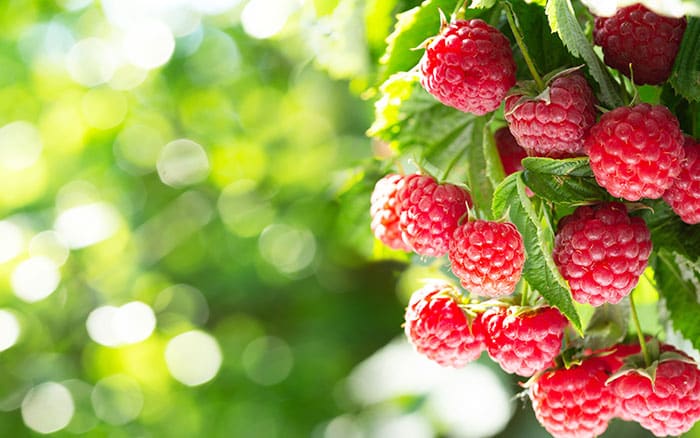
Raspberries are the perfect summer fruit. They’re cheap to grow, and make a great addition to desserts, like Eton Mess, icecream, and crumbles. Plus, they’re a great snack that you can pull straight from the shrub. Raspberries have actually been popular throughout history!
Roman agricultural writer, Palladius, noted the first recorded cultivation of raspberries in the 4th Century AD! Following this, King Edward I is credited with encouraging the cultivation of raspberries in the 13th century. Why not grow your own history?
Are raspberries good for you?
Once again we face the conundrum. Surely something so sweet and delicious can’t actually be good for you, right? Wrong! About 20 of these fresh berries count as one of your five-a-day. Plus, these plump, pink berries pack a whole host of other health benefits:
- They could help to protect against cancer because they are rich in antioxidants. In fact, animal studies suggest that they could be helpful for colon, breast, and liver cancer!
- They could contain anti-ageing properties. Raspberries are rich in protective plant compounds, called polyphenols. These help to reduce the signs of ageing, and also help to improve balance and strength. They’re rich in vitamin C, which is important for collagen production and may also help to protect the skin from UV damage.
- They could help with blood sugar management. Animal studies show that when fed raspberries alongside a high-fat diet, they help to lower blood sugar levels and insulin response.
How do you grow raspberries?
1. Get preppin'
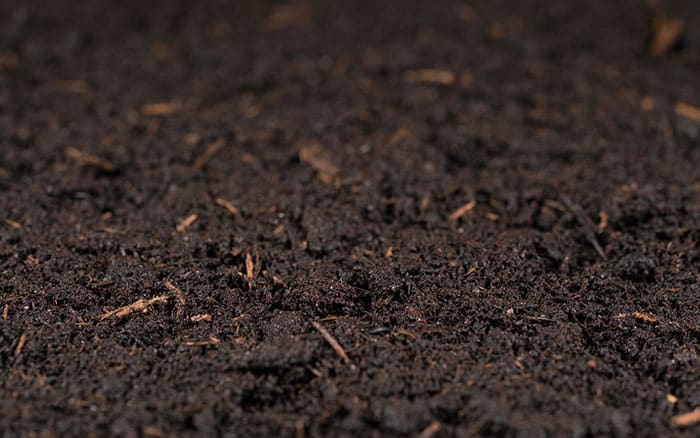
Like lots of us, Raspberries are happiest in the sun. They do best in fertile, well-drained, and moisture-retentive soil that is slightly acidic. If your soil is particularly prone to staying wet in the winter, consider planting in raised beds!
Clear the growing space by removing any weeds. These can be difficult to tame once the raspberries are established. Next, dig in lots of garden compost or well-rotted manure. Apply at least one bucket per square metre. And finally add a hihigh-potassiumertiliser like blood, fish, and bone meal.
2. Be supportive
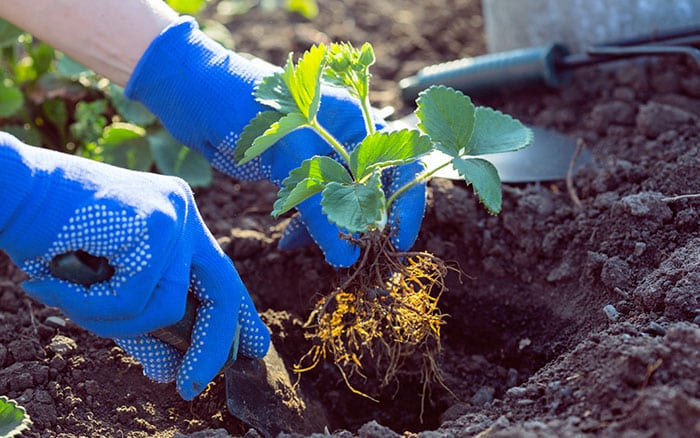
Raspberries need support to grow. If you don’t have room for rows, simply use a single post or sturdy bamboo cane to support a couple of plants.
For summer fruiting raspberries, a system of posts and horizontal wires need to be put in place before planting. Put up two sturdy 2m posts at either end of your raspberry canes and run wires between them. Tie the canes to these as they grow. And to stop the birds from stealing your berries, fix a wood T-piece to the top of each post to support bird netting.
3. Get planting.
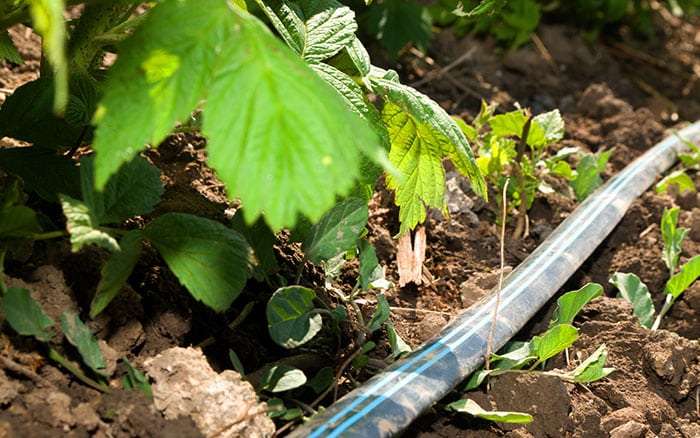
Before planting, make sure to soak the cane’s roots in water. Space canes 45cm apart with around 1.8m between rows.
Cover the roots with about 5cm of soil and gently firm around them. The canes should be pruned and ready to plant, but if they’re not, cut them down to around 15-22cm.
4. Give a little love...

When spring rolls around, feed raspberries with an organic, general fertiliser. Then mulch around the base of the plants to keep the roots moist and the weeds at bay. Make sure to keep the plants well-watered during dry spells!
Summer-fruiting raspberries should produce fruit on one-year-old canes. Tie in new canes to support them as they develop, and prune out weak shoots. You should aim for around a 15cm space between new canes, and remove any extras to avoid overcrowding. Once all fruiting has finished, cut down all fruit-bearing canes to soil level. This will leave new canes to develop fruit the following year.
5. Harvest!
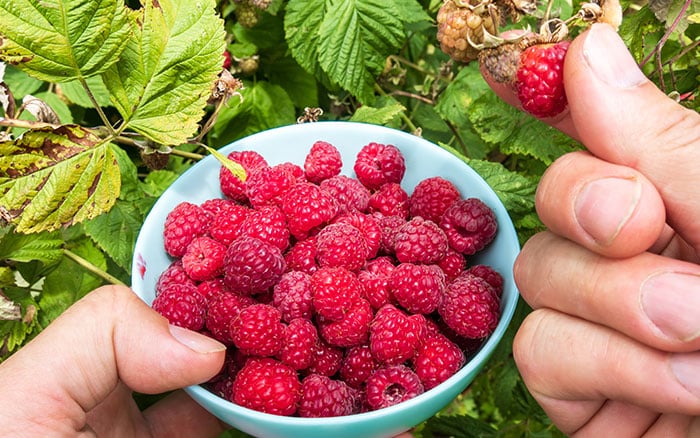
Be gentle when picking raspberries, as they are easily crushed! When they’re fully ripened, the raspberries should fall into your hand with a gentle tug.
Aim to harvest on a dry day, as damp berries can soon turn mouldy.
How and where do you store raspberries?
As with all fresh fruit and veg, raspberries are most delicious, juicy, sweet, and fresh. If you end up with a glut harvest, however, you can freeze them. Then you can pop them in a drink like a fruity ice cube. Or turn them into jam! This is a great product to sell if you’re looking to fundraise for your school or community.

And there you have it! Raspberries for your school or community garden to share, feast upon, and turn into delicious desserts.

